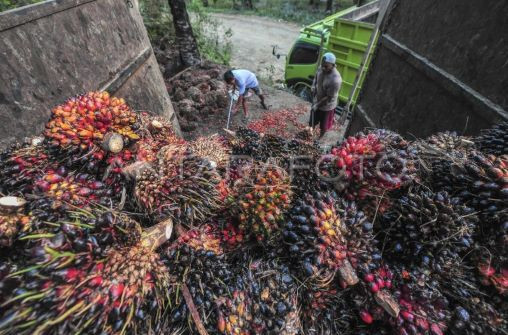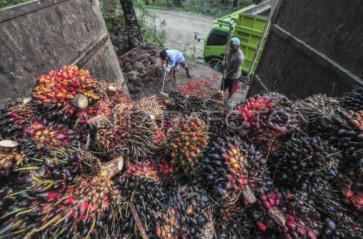Popular Reads
Top Results
Can't find what you're looking for?
View all search resultsPopular Reads
Top Results
Can't find what you're looking for?
View all search resultsWhy EUDR's implementation can and must be postponed
The latest and strongest opposition to the EUDR was expressed by 29 associations of European traders, farm producers, civil society organizations and even newspaper publishers.
Change text size
Gift Premium Articles
to Anyone
T
he international campaign that Indonesia and many developing countries have launched over the past two years against the European Union Deforestation-free Regulation (EUDR) on imports of agricultural commodities will probably achieve its goal.
The EUDR, scheduled to take effect on Dec. 30 of this year, will probably be postponed as a result of strong opposition not only from developing countries but also from Europe itself and the United States. The EUDR is a key element of the European Green Deal, a set of policy initiatives adopted by the European Commission in 2021 to make the European Union climate-neutral by 2050.
The latest and strongest opposition was expressed by 29 associations of European traders, farm producers, civil society organizations and even newspaper publishers on Sept. 25, demanding that the EUDR implementation be delayed and the necessary compliance tools be fully provided with sufficient time to prepare adequately.
Included among the organizations that made the demand in a joint statement issued in Brussels are the COCERAL association of traders of oil seeds, cereals, olive oil, oils and fats, and animal feed; Copa-Cogeca farmers and agri-cooperatives; CEPF forest owners; ELO landowners; the EUSTAFOR state forests association; and ENPA newspaper publishers.
“Already now, companies are facing paralyzing uncertainties when negotiating contracts for next year. In consequence, serious market disruptions can be expected, which would severely harm European primary producers and in consequence, serious market disruptions can be expected. This would severely harm European primary producers and downstream industries and would threaten supply chain security, reduce market access to vital EU food, feed, and forest products,” the joint statement asserted.
Over the past year, operators and traders around the world have voiced concerns about the EUDR’s practical feasibility, and many trade associations have even criticized the regulation as a discriminatory trade policy, especially against developing countries.
On Sept. 23, Reuters carried a commentary by Afiq Alias from London that says, among other things, that the EUDR would create a hazy trade future and even risk leading to a scorched-earth policy. The article cited the US, China, Brazil, Australia; several EU countries such as Germany, Italy and Sweden; and African countries among the strong critics that had been demanding the postponement of its implementation.



















